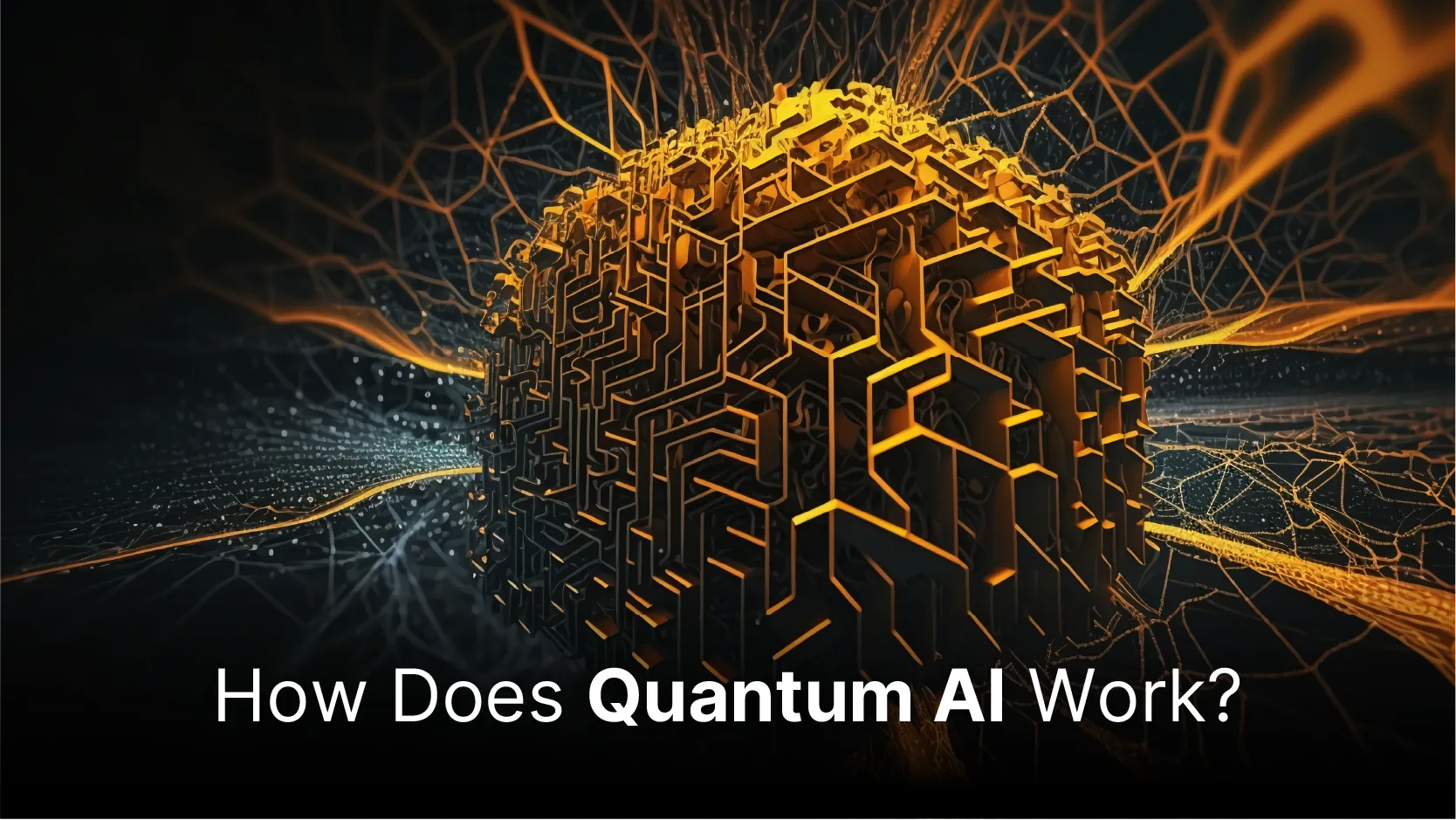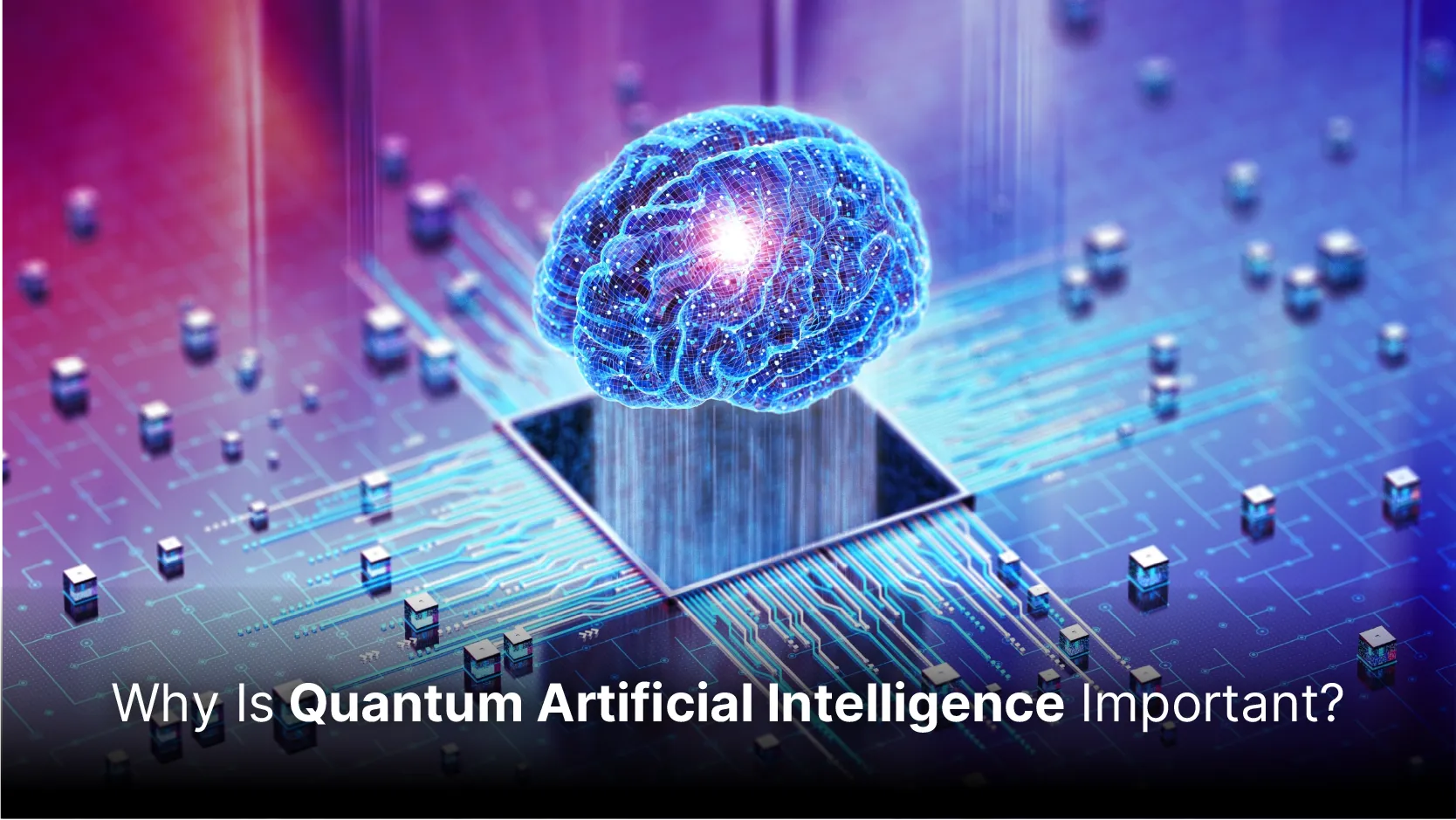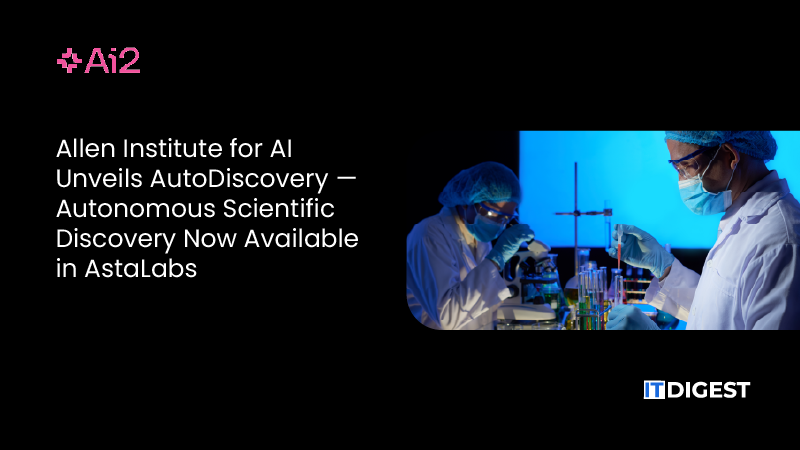Quantum Artificial Intelligence (QAI) combines the power of AI with the mind-bending abilities of quantum computing. This cutting-edge field promises to solve problems beyond the reach of traditional AI, potentially leading to breakthroughs in medicine, materials science, and beyond. According to reports, the market size for quantum AI worldwide is to reach USD 3900 million by 2033. That is a massive volume. Let’s learn more about the million-dollar industry.
What is the Meaning of Quantum Artificial Intelligence?
Quantum Artificial Intelligence (QAI) is an interdisciplinary field that merges quantum mechanics and artificial intelligence (AI) to augment AI systems’ capabilities. By employing quantum computing power and techniques, QAI seeks to address complex computational challenges more efficiently than traditional classical computing methods.
Quantum computing offers a significant computational enhancement to AI, allowing it to solve intricate problems and advance towards achieving Artificial General Intelligence (AGI). The core objective of Quantum AI is to create innovative algorithms and models that harness the unique properties of quantum computers.
How Does Quantum AI Work?
 Quantum Computing Fundamentals
Quantum Computing Fundamentals
- Quantum Bits (Qubits): Superposition allows qubits to exist in more than one state at once, unlike traditional bits, which may only be either 0 or 1. This makes it possible for quantum computers to process enormous amounts of data at once.
- Entanglement: Qubits can entangle, which means that regardless of their distance from one another, the states of two qubits are intimately connected. This characteristic makes communication and information processing extremely effective.
- Quantum Gates and Circuits: Quantum gates manipulate qubits and are the building blocks of quantum circuits. These circuits perform complex computations that would be infeasible for classical computers.
Also Read: What Is Edge Containers? Benefits, Challenges
Quantum Algorithms for AI
- Quantum Machine Learning (QML): Quantum versions of machine learning models and algorithms, such as Quantum Support Vector Machines (QSVMs), Quantum Neural Networks (QNNs), and Quantum Principal Component Analysis (QPCA), offer potential speedups for tasks like classification, regression, and data reduction.
- Grover’s Algorithm: Used for database search, Grover’s algorithm provides a quadratic speedup over classical search algorithms. This can be useful in AI for finding optimal solutions in large datasets.
- Quantum Annealing: A quantum computing method used for optimization problems. It can be applied to machine learning tasks like training models by finding the minimum of a loss function more efficiently.
A great practical application is TensorFlow Quantum (TFQ), an open-source framework developed by the Google Quantum AI team. This toolkit combines machine learning and quantum modeling methods. The goal of TFQ is to provide the necessary tools for modeling and controlling real or artificial quantum systems.
Why Is Quantum Artificial Intelligence Important?
 Quantum artificial intelligence is basically the merging of two powerful fields: AI and quantum computing. It’s like giving AI a massive computational boost.
Quantum artificial intelligence is basically the merging of two powerful fields: AI and quantum computing. It’s like giving AI a massive computational boost.
Here’s the gist:
- Regular AI is already pretty impressive but gets bogged down by complex problems.
- Quantum processors use the weird laws of quantum mechanics to solve certain problems way faster than regular computers.
- QAI combines them, potentially allowing AI to tackle problems that are currently impossible.
Think of it as giving AI superpowers to solve extremely hard problems! This could revolutionize fields like medicine, materials science, and beyond. It’s an exciting area of research, but still under development.
Is Quantum Artificial Intelligence Closer?
Yes, quantum artificial intelligence is indeed getting closer, evidenced by several key advancements and applications.
Advancements in Quantum AI
- Quantum Algorithms: Quantum versions of classical machine learning algorithms like Quantum Support Vector Machines (QSVMs) and Quantum Neural Networks (QNNs) are being developed, providing potential speedups in data processing and model training.
- Quantum Hardware: Progress in building more stable and scalable quantum computers with an increasing number of qubits has been significant. Companies like IBM, Google, and Rigetti are at the forefront of this development.
- Quantum Software Platforms: Platforms like Google’s Cirq and IBM’s Qiskit are making it easier for developers to experiment with quantum algorithms and integrate them with AI models.
Examples of Quantum AI Applications
- Optimization: Quantum annealing, used by companies like D-Wave, has shown promise in solving complex optimization problems more efficiently than classical methods. This has applications in logistics, finance, and materials science.
- Drug Discovery: Through the unparalleled scale and speed of molecular interaction simulation provided by quantum AI, the search for new medications can be sped up. This may expedite the development of numerous illness treatments.
- Financial Modeling: Quantum computing can enhance financial modeling and risk assessment by quickly processing vast amounts of data and performing complex calculations that are infeasible for classical computers.
What Potential Uses For Quantum Computing Exist In Artificial Intelligence?
The opportunities for integrating quantum computing into AI are vast. In the near future, researchers aim to develop quantum algorithms that outperform classical algorithms and put them into practical use. The development of quantum algorithms for quantum equivalents of classical learning models is a key focus. These algorithms could potentially offer speed-ups or other improvements in the training process of deep learning models. Quantum computing may help in quickly determining the optimal solution set of weights for artificial neural networks.
Addressing decision problems with quantum algorithms is another significant area. By leveraging Hamiltonian time evolution, quantum algorithms can efficiently solve problems represented as decision trees, surpassing the limitations of classical approaches. Quantum search algorithms also show promise. While classical computers excel in search problems, the Grover algorithm, developed by Lov Grover, demonstrates that quantum computers can solve these problems even faster. This could have implications for applications like encryption. Furthermore, exploring quantum game theory could provide valuable insights into quantum communication and the implementation of quantum artificial intelligence.
Winding Up
In the future, quantum artificial intelligence holds immense potential to reshape the landscape of AI. By leveraging the power of quantum computing, QAI can unlock unprecedented computational power, leading to faster and more efficient processing of complex data. The development of quantum-designed algorithms and the exploration of quantum machine learning techniques open up new frontiers for AI research and application. As QAI continues to evolve, it can bring about groundbreaking advancements in various industries, revolutionizing fields such as cybersecurity, bio-engineering, finance, and manufacturing.


































